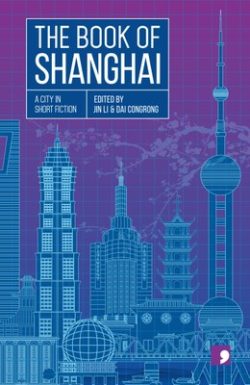#goodchinesereads ~ The Book of Shanghai
Edited by Dai Congrong and Jin Li
By Wang Anyi, Xiao Bai, Shen Dacheng, Chen Danyan, Cai Jun, Chen  Qiufan, Xia Shang, Teng Xiaolan, Fu Yuehui & Wang Zhanhei
Qiufan, Xia Shang, Teng Xiaolan, Fu Yuehui & Wang Zhanhei
Translated by: Lee Anderson, Yu Yan Chen, Jack Hargreaves, Paul Harris, Frances Nichol, Christopher Macdonald, Carson Ramsdell, Josh Stenberg, Katherine Tse, and Helen Wang.
Flash Reviews
Riya Shah, 27/4/21
Wang Anyi’s “Ah Fang’s Lamp”, tr by Helen Wang
The plot of “Ah Fang’s Lamp” is a little more than simply a protagonist encountering a local fruit seller over the years. Set in the city of Shanghai which is famous for its futuristic skyline and is often described as “The Paris of the Orient”, Wang Anyi brings us a story that zooms in on the narrowest street and the young girl working at a tiny fruit stall beneath a window. With a focused gaze on the lives of everyday people, especially the ones ignored, Wang portrays the casual encounters between an unnamed protagonist and Ah Fang, drawing us into a story within-a-story.
The major theme running throughout the story is about the transitory nature of the everydayness of life. Though the protagonist often wonders what kind of lives go on in the homes that open on to the street, the flame of curiosity fades away amidst the deliquescence of life’s everydayness. The shutting down of the shop makes the protagonist forget about Ah Fang and unbothered, unaffected, she continues her daily travel through the street.
“When the doors are shut, one can’t tell whose is whose”, the feeling of anonymity and struggle not to disappear among the hustle and bustle of the city is another theme dealt in the story. Set in a city where all the doors look the same, we see how the protagonist couldn’t recognize the door of Ah Fang’s house when it was shut.
Written as a first-person narrative, the story is about observation of other people’s lives and the protagonist is using these observations to fulfil her own curiosity as an outsider who will never actually live these lives. At the end, the narrator tries to cling on to an idealistic version of the story where the magical arrival of Ah Fang transforms the crumbling family. The story is yet another proof of Wang’s excellent humanistic writing style, where she uses the illusory quality of memory to enhance her narrative. With almost poetic fluidity she elevates the ignored and the trivial, and in the process paints a realistic picture of Shanghai at the ground level.
